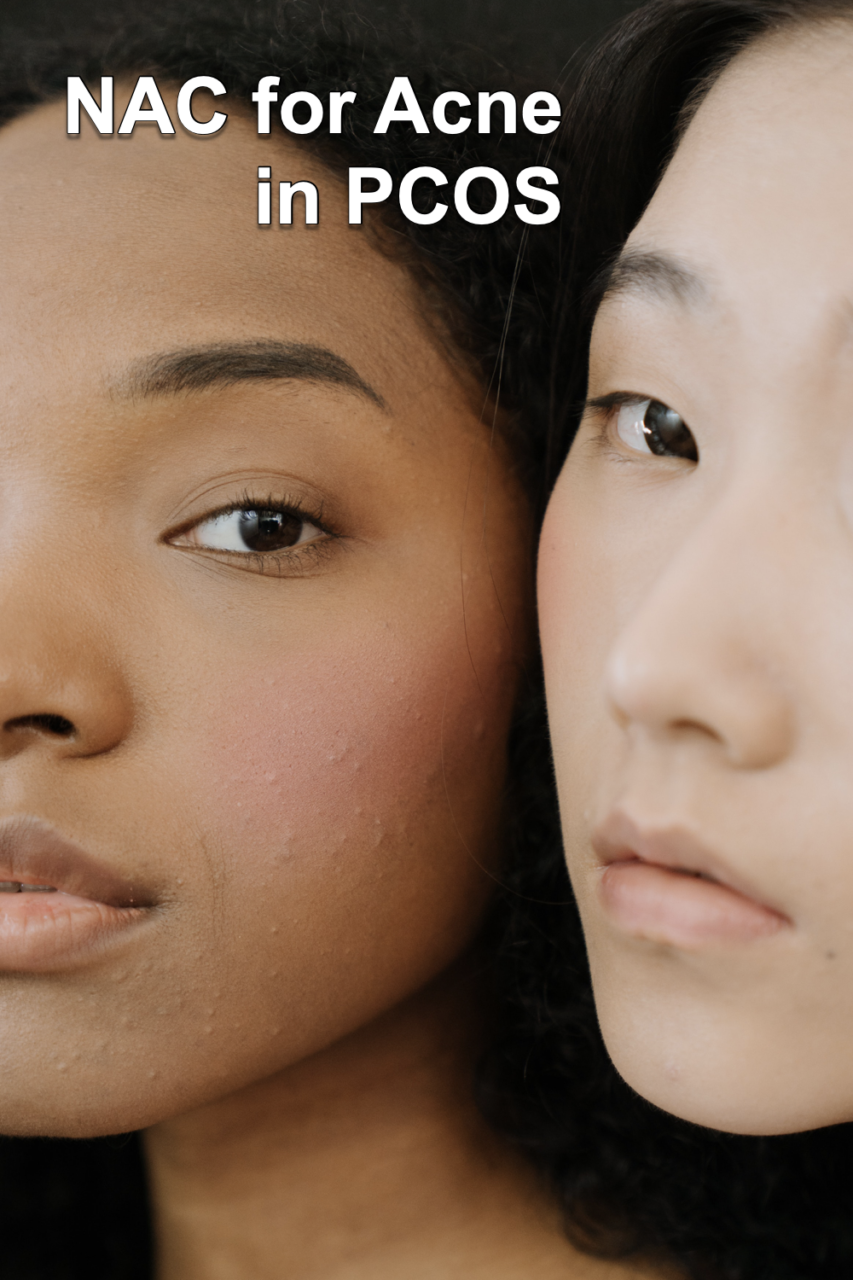Polycystic Ovary Syndrome (PCOS) is a hormonal disorder that can impact women in various ways. PCOS is a syndrome, meaning it is a collection of traits or findings generally seen together. However, you do not need to have all the traits or findings to be diagnosed with PCOS, which is why it makes the condition so unique and complex to treat.
Not all women with PCOS will suffer from acne, however, it is estimated that acne affects 10-34% of women with PCOS3.
What causes acne in PCOS?
The major cause of acne in PCOS is high testosterone levels known as hyperandrogenism. High levels of androgens commonly seen in PCOS can cause the glands in your skin to produce excess oil known as sebum.
Acne lesions occur when sebum and dead skin cells build up inside hair follicles resulting in bacteria (ie. Propionibacterium acnes) being trapped beneath the skin – leading to inflammation and ultimately cystic acne.
What does acne look like in PCOS?
Acne lesions see in women with PCOS are commonly cystic lesions meaning they form deep beneath the skin. It can be very painful and red in appearance. Often times in PCOS these lesions are seen on the chin and jawline but can also appear on the chest, upper back and neck.
Antioxidant Treatment for Acne Vulgaris
N-acetyl cysteine (NAC) is by far one of our most powerful antioxidants we have. The reason being, NAC is a precursor to glutathione which is probably considered the “Mother of all antioxidants” being used by every single cell in the body. Antioxidants are known to promote cellular health and combat oxidative stress. Oxidative stress can impact the body by damaging cells, protein, and DNA.
As mentioned above, acne production is driven by inflammation, therefore by using antioxidants such as NAC it can help to treat acne vulgaris.
Research suggests that NAC can prevent the production and release of certain inflammatory cytokines and it also has antibacterial activity against various bacteria2.
The unique thing about NAC is that it’s role in PCOS extends far beyond its anti-inflammatory benefits. Research shows that NAC has the ability to reduce testosterone production, insulin production and support regular menstrual cycles in women with PCOS1.
The recommended dose in research has been shown to be 1800 mg daily1.
Other considerations for acne:
- Diet
- reducing inflammatory foods that can impact the skin is important here, especially sugar
- considering food sensitivities such as dairy products
- avoiding trans fats and high fat foods
- ensuring adequate water consumption is important
- Personal hygiene
- washing face regularly
- avoid touching skin often
- avoid picking or popping lesions as this can result in scarring
- Other supplements to consider
- Vitamin A, Omega 3 Fish oil, Zinc, Probiotics, Berberine
Acne can be very complex to treat. However, working on the skin both internally (ie. hormones, digestion) and topically can help to reduce inflammation and support healthy skin.
Working with a Naturopathic Doctor can help to identify the root cause of your acne and establish a plan using dietary, lifestyle and supplement recommendations.
References:
- Günalan, E., Yaba, A., & Yılmaz, B. (2018). The effect of nutrient supplementation in the management of polycystic ovary syndrome-associated metabolic dysfunctions: A critical review. Journal of the Turkish German Gynecological Association, 19(4), 220–232. https://doi.org/10.4274/jtgga.2018.0077
- Mardani, N., Mozafarpoor, S., Goodarzi, A., & Nikkhah, F. (2021). A systematic review of N-acetylcysteine for treatment of acne vulgaris and acne-related associations and consequences: Focus on clinical studies. Dermatologic Therapy, 34(3), e14915. https://doi.org/10.1111/DTH.14915
- Polycystic Ovary Syndrome and Acne. (n.d.). Retrieved November 6, 2021, from https://www.skintherapyletter.com/acne/polycystic-ovary-syndrome/





